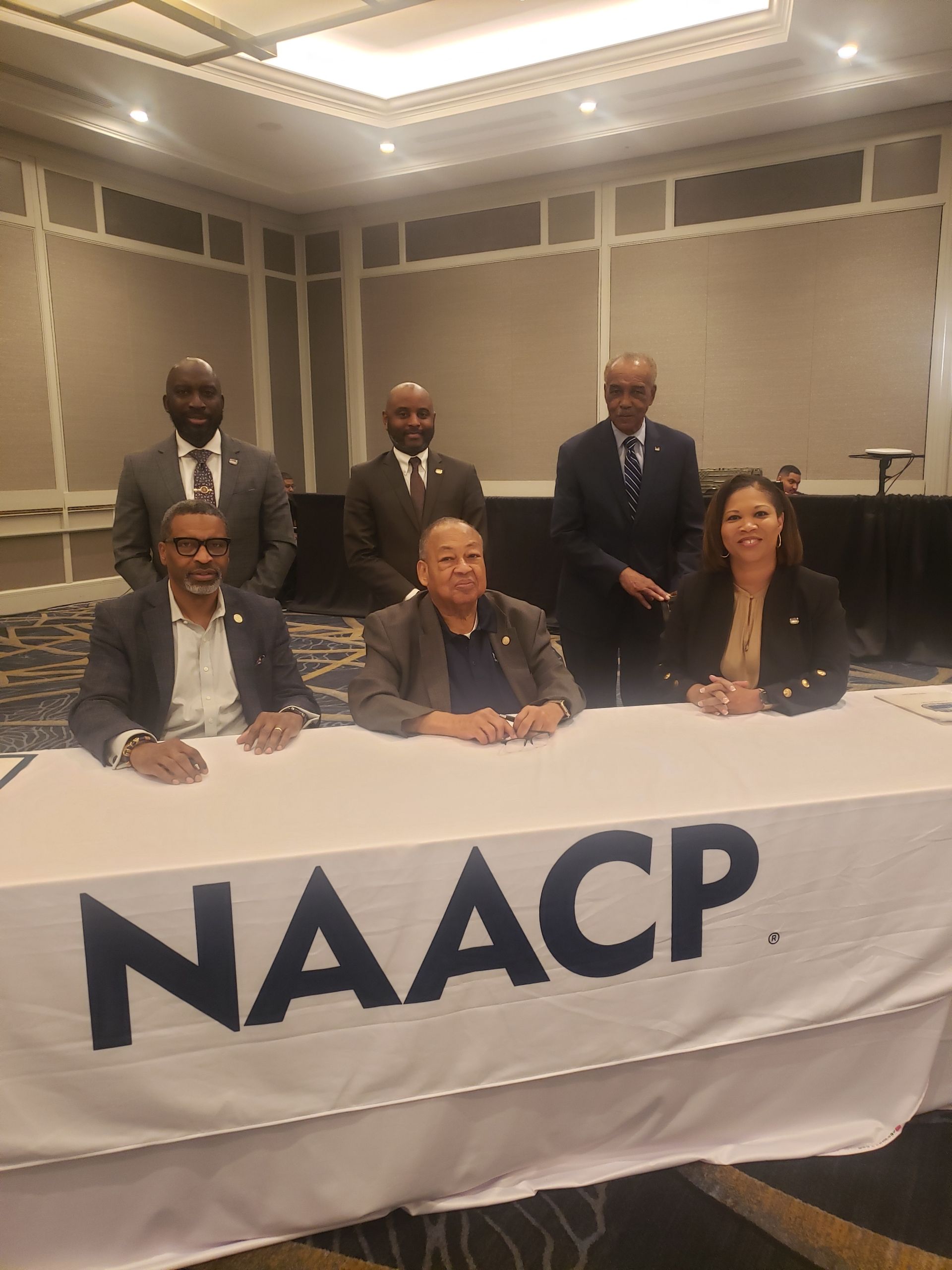NAREB Calls on White House and Congress to Boost Black Homeownership and Close Wealth Gap
Organization Will Hold Elected Officials Accountable
The National Association of Real Estate Brokers (NAREB) called on the White House and Congress to enact legislation aimed at increasing Black homeownership after provisions approved by the House were excluded from the Inflation Reduction Act, which Congress passed and was signed into law by President Biden.
Rep. Maxine Waters (D-CA), chair of House Financial Services Committee, championed $150 billion of assistance for renters and potential homebuyers in House legislation, including support for first-generation homebuyers and improved fair housing enforcement. After it was eliminated, Rep. Waters summed up her disappointment in a speech on the House floor: “There is not one nickel, not one dime, not one dollar, for the development of housing in this bill.”
NAREB President Lydia Pope said organization members are disappointed that down payment assistance for first-generation homebuyers, as well as other measures, were stripped from the legislation before passage. She called for Congress and the White House to work on legislation to address lagging Black homeownership and the racial wealth gap in America.
“Certainly, we recognize that compromises were made for the bill to pass, but those cannot come at the expense of African Americans, who have experienced decades of housing discrimination, and its intergenerational impact,” said Pope. “Too many elected officials, corporations, and others talk about their equity agenda, then do far too little to make it a reality. It is time that they be held accountable.”
Pope acknowledged that Rep. Waters and Sen. Sherrod Brown (D-OH), who chairs the Senate Banking Committee, continue to press for down payment assistance. Pope called on Congress to pass legislation in a lame duck session after the midterm elections. “This is an area where we need immediate action,” she said. “Too many families are denied the American Dream of homeownership. The ugly legacy of housing discrimination must end, and a new chapter must begin that helps Blacks generate intergenerational wealth.”
Pope noted that homeownership for Blacks dropped nearly 20% since 2008. Fifty-four years after the 1968 Fair Housing Act, the homeownership gap has widened. In 1960, a 27-point gap existed with 38% of Blacks owning homes compared to 65% of Whites. The gap is now 29.6% with 44.6% of Blacks owning homes and 74.2% of Whites, the largest spread since 1890.
The House legislation had addressed one of the most difficult hurdles for Black homeowners – the down payment costs. Studies find that many Black families have the income to qualify for a mortgage but struggle to come up with the upfront costs. The House had included a $10 billion down payment grant program for first-time, first-generation homebuyers. “The nation needs that legislation to be revived,” said Pope. “Homeownership is the largest component of wealth for African Americans. To reduce the wealth gap, which spurs inequities throughout our society, there must be a significant boost in homeownership.”
Specifically, NAREB has identified four areas that need to be addressed.
- Down Payment Assistance. Currently, there are options for down payment assistance available for families, but most come with conditions that hurt their ability to get a home loan. Some programs tack on a second mortgage or stricter wage and credit score requirements. Others link down payment assistance to a tax credit, but that kind of relief does little to help a family that cannot close on house because they cannot afford the down payment. NAREB supports a grant program for down payment assistance so that participation does not impact the ability to qualify for a mortgage.
- Student Loan Debt. Four years after college graduation, Black people owe an average of $25,000 more in student loan debt than their White counterparts, and Black people leave school with an average of $52,726 in student debt, according to the Brookings Institution. The student loan debt impacts the ability of Black people to purchase homes. One of the biggest issues is the inconsistency in determining how student loan debt is calculated in the debt ratios of the mortgage underwriting process. Essentially, while the future debt is factored in, anticipated future wage increases are not. There has been some progress with Fannie and Freddie acknowledging income-based payment plans that lower the monthly debt ratio calculations, but it does not address the fact that the actual student loan debt continues rising. It is critical that a uniform standard is created that guides the Federal Housing Administration, Fannie Mae, Freddie Mac, and Veterans Administration in calculating the debt, so it is not left to lenders.
- Loan-Level Price Adjustments (LLPAs). A comprehensive study by the Journal of Financial Economics found that risk-equivalent Latinx/Black borrowers pay significantly higher interest rates on GSE-securitized and FHA-insured loans, particularly in minority neighborhoods. Researchers estimate that these rate differences cost minority borrowers more than $450 million yearly. The LLPAs are the culprit. Even if someone qualifies for a loan, lenders are allowed to adjust the interest rate based on credit scores. Further, Private Mortgage Insurance companies are also increasing their rates for mortgage insurance based on credit ratings. Thus, the consumer can get hit with higher rates twice creating price increases that can push potential buyers out of the market. NAREB seeks an end to LLPAs and established that if a family meets the qualifications for a mortgage, they get the loan without additional fees.
- Fair Appraisals. NAREB seeks an end to appraisal bias when Black people are selling their homes or need a valuation on new ones. A Brookings Institution study shows that homes in Black neighborhoods appraised for 23% less than similar homes in White neighborhoods. A 2021 Redfin study found that homes in Black neighborhoods are undervalued by $46,000 on average, a gap that has been constant over the past decade. Furthermore, the appraisal review process is deeply flawed. When an appraisal is disputed, the burden is on the real estate agent or lender to provide data supporting a change in the valuation. But that rarely happens – less than 3% of appraisals are ever revised. NAREB wants a revamped appraisal review process. In addition, NAREB calls on the public and private sector to help increase the number of Black appraisers. There are 78,000 appraisers across the country but only 2% are Black.
“NAREB will be publicly calling on lawmakers and the Biden Administration to take action on these issues, particularly pressing elected officials who rely on votes from Black communities,” said Pope. “Rhetoric no longer counts for much. Our communities need action, and this organization will hold elected officials accountable to the people who elect them.”


